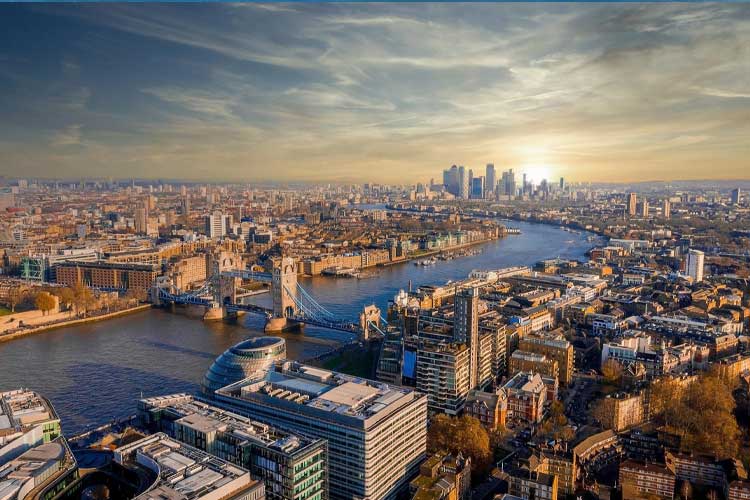

As per a research carried out by greentech company Pavegen, the people of UK support a New York-inspired ‘brown tax’
September 22, 2023 | Staff Reporter | UK | Facilities Management

Two-thirds (66%) of UK respondents would support a New York-inspired ‘brown tax’ to help decarbonise commercial buildings exceeding set emission limits, according to research carried out by greentech company Pavegen. The findings come as Pavegen unveils its latest project at the Building Centre in London where it is showcasing what is billed as the “street of the future” in cities. The unveiling coincided with global Zero Emissions Day – September 21 – and sough to raise awareness about the harm caused by catrbon emissions.
Pavegen tiles harness the kinetic power of footsteps or movement to create clean, off-grid energy that can be used to help power LED lighting and charge smart-phones. They can also be used to boost citizen engagement by creating engaging, immersive experiences such as green walls that connect people and businesses with environmental, social or governance (ESG) initiatives.
Its new installation at the Building Centre will showcase a range of products and solutions designed to help governments, businesses and people engage with ESG goals. In addition to Pavegen tile, visitors can see the “walk of light” – a footpath that lights up as it is walked on. This low maintenance, self-perpetuating flooring could help improve public safety and reduce the reliance and cost of overhead street lighting for councils, and allow large buildings to integrate Pavegen systems into their carbon emission reduction efforts.
From January 2024, New York City will introduce one of the most expensive carbon taxes, fining landlords of large structures – including residential buildings – $268 per ton for exceeding carbon dioxide emission limits. As well as support for a similar approach in the UK to help decarbonise commercial buildings, the survey revealed that sustainability is top of mind for many UK consumers.
Some 63% of respondents reported to have tried to live more sustainably in the last year, with a reduction in energy consumption (77.2%), cutting of food waste (78.2%) and fewer leisure and travel trips (40.3%) cited as the main ways they have done so. Some of the major barriers to living sustainably are the perceived expense (41.4%), difficulty (19.7%) and lack of knowledge (18.4%).
When asked about their vision of the “street of the future” in cities, 45 % wanted to see more trees and plants, 34.7 % wanted more pedestrian-only zones and 27.4 % like the idea of pavements and footpaths that generate electricity. At the same time, almost 15 % of respondents said they would spend more time in their nearest city if there was better infrastructure in place.
“Our urban environments need to change from somewhere to go, to somewhere to love,” said Laurence Kemball-Cook, CEO and founder of Pavegen, which is also launching a new crowdfund on Zero Emissions Day. “And a major part of that is creating a better, healthier environment for work and leisure. We know that commercial buildings in London are responsible for almost 80 % of emissions and it’s interesting to see such support for a New York-style scheme to introduce fines for the worst offending culprits.
“However, it can’t be all stick, no carrot. A truly smart city of the future isn’t just about invisible tech but putting the people at the heart of it. We all have a part to play in combatting climate change and being more sustainable from our government and institutions to the person on the street. We know there is an appetite for sustainability but also barriers. So, we are focused on working with clients to create frictionless ways to be more sustainable, by harnessing the power of everyday activity like commuting, shopping and leisure to engage people in the fight against climate change.”
The Building Centre installation will be in place until September 29 and located at 26 Store Street, London, WC1E 7BT.